Exclusive:Brexit: Scotland farmers and crofters face more environment conditions to be eligible for subsidy payments
Farmers and crofters have been given more conditions to meet to be eligible for post-Brexit subsidy payments, a Scottish minister has said.
The announcement comes as the agriculture sector has been grappling with rising input costs and food prices, with the industry crying out for more clarity on what the Scottish Government will replace the EU’s Common Agricultural Policy (CAP) subsidy payment with when it ends next year.
Advertisement
Hide AdAdvertisement
Hide Ad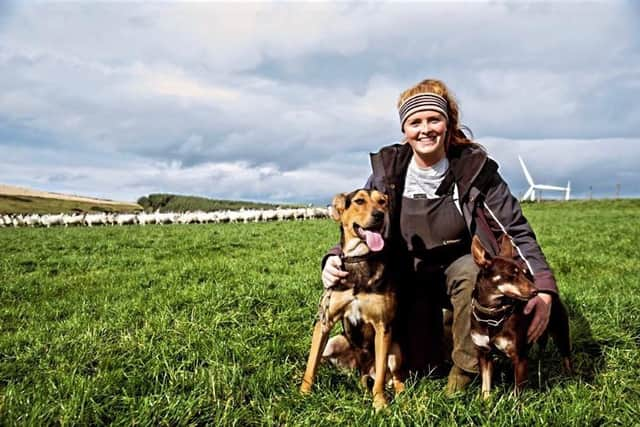

The new conditions include requirements for all farmers and crofters to carry out soil testing, carbon and biodiversity audits, and follow an animal health and welfare declaration to qualify for any support payment from 2025 onwards.
They must also protect peatlands and wetlands if such habitat is on their land, and meet the new conditions of the Government’s Scottish Suckler Beef Support Scheme to help cut emissions by making beef production more efficient.
Rural affairs secretary announced the new conditions, which will be introduced from 2025, at the opening of the Royal Highland Show.
She also reiterated the Scottish Government has committed to direct payments under the future scheme.
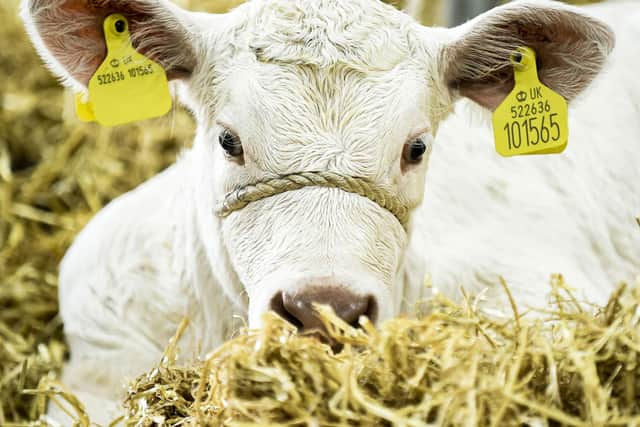

The minister said further detail of the new conditions can be found in the updated Agricultural Reform Route Map which was published on Thursday morning.
The industry, including members of the National Farmers Union Scotland (NFUS), have been crying out for more detail on the financing of the new tiered system that is set to replace the current payment scheme.
Scottish farming: Campaigners say new farm funding report 'makes the case' for radical approach to Agriculture Bill
Speaking to The Scotsman after her speech, Ms Gougeon said she had no clarity on what the Scottish Government’s budget will be for when the new conditions will be introduced, and therefore was unable to answer questions on the financing details of the future scheme.
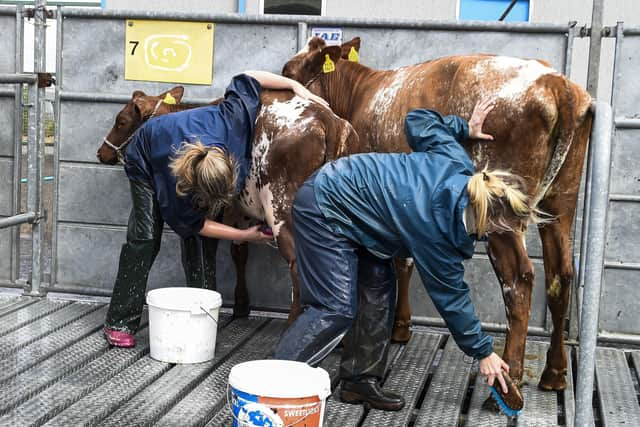

“We are trying to provide as much clarity as possible,” she said.
Advertisement
Hide AdAdvertisement
Hide Ad"But beyond 2025, we don’t know what our budget will be which makes it really difficult to plan.”
When asked to give indication on when there will be more detail on the financing of the scheme, she said: “That’s entirely dependent on the UK Government, and that’s a conversation that we’ve tried to have with them.
The Secretary of State for Scotland Alister Jack, also attending the show, dismissed Ms Gougeon’s claims responsibility lies with the UK Government on setting the financing of the scheme.
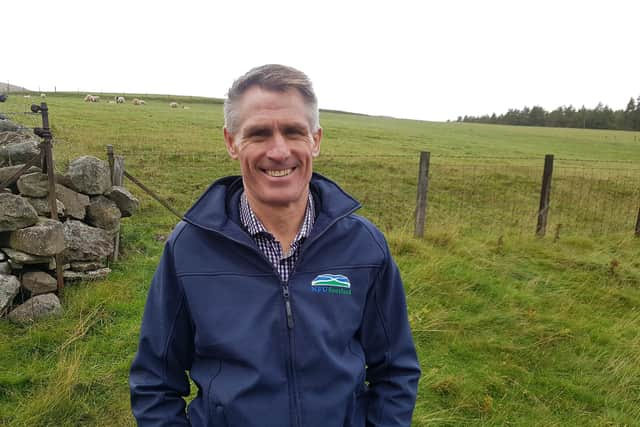

He referenced the record Block funding given to Scotland to cover devolved matters.
Block Grant funding for the Scottish Government is the highest since devolution began at around £41 billion a year for 2022 to 2025.
It means that for every £100 per person the UK Government spends in England on matters devolved to Scotland, the Scottish Government will receive around £126 per person in Scotland.
"It’s up to the Scottish Government how they then allocate those funds,” Mr Jack said.
"Agriculture is devolved, and it’s up to them how they then divide it.
Advertisement
Hide AdAdvertisement
Hide Ad"They need to decide with their envelope - are they giving more or less to farming after 2024.
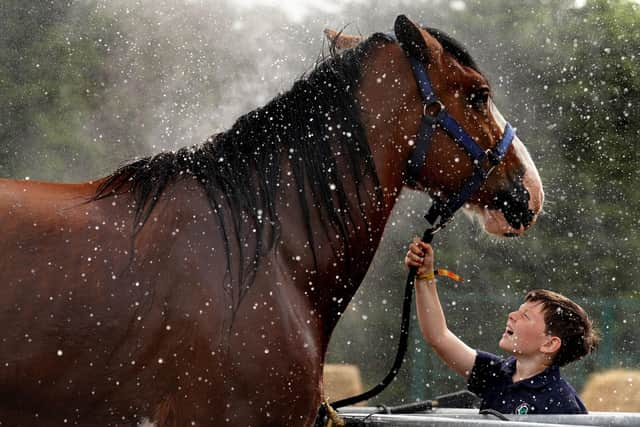

Ahead of the announcement, Jonnie Hall, head of rural policy at NFUS, said the organisation has been “calling for more clarity and certainty for some time".
He said the union was “tired of warm words” from ministers and demands more action.
"We want Mairi Gougeon to commit seriously to Scottish agriculture,” he said.
"We need clear government commitments that the backing will be there both in terms of the funding available and how it will be spent to enable farmers and crofters to deliver on triple challenges we face – food, climate and biodiversity.
“The major questions are how much funding is there, what’s the budget, and how will it be spent.”
He said ministers set out the Government’s new agriculture payment support “route map” at the union’s AGM in February, but “it lacked essential information”, such as how the payments would be funded.
Farmers are currently able to apply once a year for the Basic Payment Scheme (BPS) from the EU’s CAP payment system, which will run until 2024.
Advertisement
Hide AdAdvertisement
Hide AdHowever, the new payment structure, due to come into force by 2025, is split into four different types of payment tiers – base, enhanced, elective and complementary.
Base is said to likely be a small percentage of the existing direct payment to provide some support to businesses on the proviso they meet some basic “essential standards” such as basic environment practices and statutory management requirements.
Enhanced is set to financially incentivise payments for businesses that are highly effective in reducing greenhouse gas emissions and carrying out nature restoration and enhancement.
Elective will be more targeted funding for climate mitigation projects and nature recovery as opposed to enhancing agricultural production practice. The complementary tier provides supporting services to farmers doing continuous professional development (CPD), advisory services, tree planting, woodland management, and peatland restoration and management.
But members of the agriculture community said they were in the dark about budgeting details of the different tiers, thus making it difficult for them to plan for the future of their businesses.
"Agriculture is a long-term game,” said Mr Hall.
"If you think about the beef herd in particular – a calf is born today, it could be three or four years, almost five years in some cases where you see the progeny of that calf becoming a cow then it getting onto the supermarket shelves.
"Farmers need the confidence over a number of years, not just one year to the next.
"Viable agricultural businesses rely on support payments, but we have a case of a lot of folks sitting on their hands rather than making sound investment decisions about their businesses going forward because of the lack of clarity.”
Advertisement
Hide AdAdvertisement
Hide AdA challenging time for the farming sector
The new conditions come at a time where farmers have faced mounting pressures, with the Russia-Ukraine war prompting a rapid rise in input costs, including a sharp rise in fuel, feed and fertiliser prices.
Mr Hall added: “It's a very uncomfortable time for Scottish agriculture, with the war in Europe and living in the shadow of Brexit, which still presents many unknowns.”
Earlier this week, the Scottish Government also announced it would not authorise the herbicide Asulox for bracken control, despite the farming industry urging for permission to use it to control the invasive weed.
Farmers said aerial spreading of the chemical, which has been a method used for the past few decades, was essential to reach areas on hilly land to target the weed where access by vehicle is dangerous.
They also say bracken presents a welfare issue for both animals and humans as it harbours ticks, which increases the spread of tick-borne illnesses such as Louping ill and Lyme disease.
Ministers, however, said the risks the chemical poses to the environment and human health outweigh the benefits of controlling bracken.
The herbicide was given the OK in England earlier this month, but north of the border, farmers will be restricted to physical methods – cutting, bruising, trampling and pulling.
An insecure future
Nicola Wordie, who runs a farm in Aberdeenshire, said the lack of clarity on future payments for farmers in Scotland had made many in the young farming community feel insecure about their future.
Advertisement
Hide AdAdvertisement
Hide AdThe 24-year-old, who looks after some 900 ewes, said the detail on the future payment structure was “extremely overdue”.
"The Scottish Government needs to pull its finger out,” she said. "I feel like we are constantly being held in this loop, and no one knows where we are going or what we are doing.
"But when you have animals, you really need to plan ahead. We have bulls in with our cows now, and their calves are due to be sold in 2025.
"We can’t just turn off the tap now and say ‘oh, we just won’t put the bulls in because we don’t know what’s going to happen’. In two years’ time, that could be the biggest mistake we ever make.
"It’s extremely hard and it’s really worrying. As a youngster coming into the industry, I feel like there’s no security in the future of farming.”
Ms Wordie said her farm was part of schemes to protect the environment, such as ground nesting birds, which she feels immensely proud of.
But she insisted the Scottish Government must find a balance between protecting the environment and producing enough food.
"Where is our food going to come from if we plant all the ground in trees?” she said. “It seems some think that is genuinely an option, and I think that’s what’s scaring a lot of farmers.”
Advertisement
Hide AdAdvertisement
Hide AdThis year, Farm for Scotland’s Future, a collective whose members include RSPB Scotland, Soil Association Scotland and the John Muir Trust, published a new study on how farm payments need a complete overhaul to protect food security and the environment.
In the report, titled “The Case for Change”, authors warned the way farms are currently funded “is making climate change worse and risks our food security” and that coming Agriculture Bill was “an opportunity to “rethink how we support farmers and crofters.”
The document pointed out in 2019, the farming budget represented just 1 per cent of the overall Scottish Government’s budget.
And the amount spent on the Agri-Environment and Climate Scheme and Rural Priorities schemes accounted for just £41 million – 7 per cent of the farming budget and 0.1 per cent of the overall Scottish Government budget.
Comments
Want to join the conversation? Please or to comment on this article.
